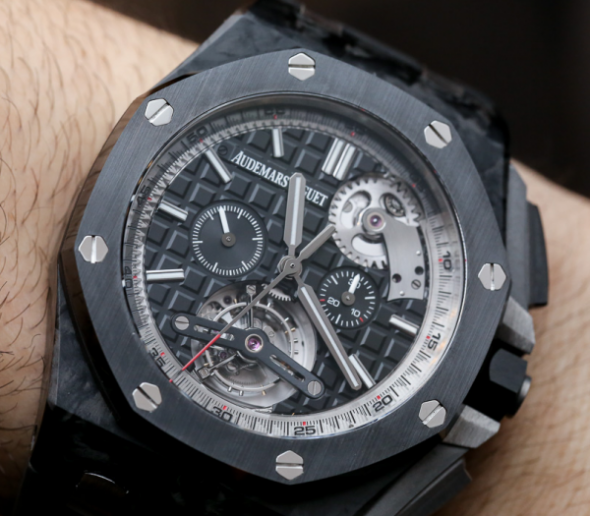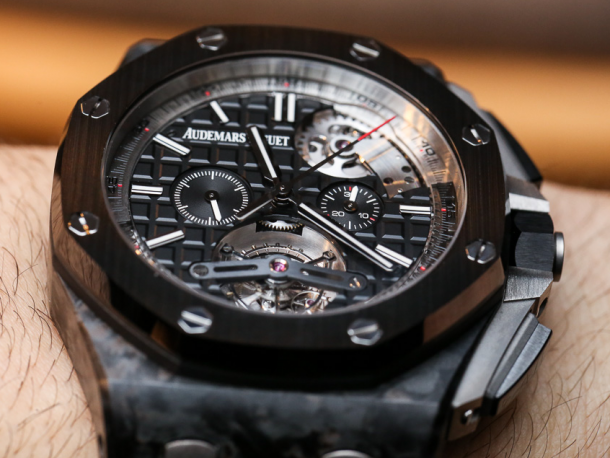Since its debut in 1992, the solid Audemars Piguet Royal Oak Offshore copy watches have housed all sorts of complications in its virile, sporty case. The pinnacle of these endeavors surely was the $740,000 Grand Complication (hands-on here), but today we are looking at a more typical-for-AP combination of fine complications: the tourbillon chronograph. Let’s see what this bold, complex-looking thing, the Audemars Piguet Royal Oak Offshore Selfwinding Tourbillon Chronograph (debuted here), has to offer.
When the first Royal Oak Offshore made it to the market in 1993 with its beefy 42mm case, many observers thought that Audemars Piguet may have missed the mark with its spinoff on the iconic Royal Oak. Some said it was too big for a conventional sports watch… but let’s not forget that when Gérald Genta introduced the Royal Oak in 1972, the world’s first “luxury sports watch” in a stainless steel case and a price tag well above that of a gold watch, the reaction was similarly conservative. It took time for the market to digest the radical proposal, but once it was accepted, a real success story began to unfold.
With its industrial architecture and the incorporation of the oversized chronograph pushers protected with rubber guards, the “ROO” consolidated its imposing character. The dramatic high-tech character and performance of the watch made it (at least appear to be) suitable for extreme sports, all the while maintaining some of that original, powerful, elegant Royal Oak vibe.

We have come a long way since the original Audemars Piguet fake watches, though, so enough with looking to the past, and let’s see what this high-complication version brings to the table.
Audemars Piguet tends not to shy away from developing and introducing new and ever more complicated high-end movements – while they nevertheless seem to take their time when it comes to upgrading their more ubiquitous movements, as testified to by the new ROO Diver Chronograph (hands-on coverage and explanation here).

Anyhow, with the Caliber 2897 inside the Audemars Piguet Royal Oak Offshore replica watches with black bezels, they went on to add a bit to the tried and proven recipe of a tourbillon chronograph by equipping it with a peripheral automatic winding rotor. Clearly, one of the aesthetic issues with automatic movements is that the central rotor hides almost half of the movement’s components – and if there ever were a “first world problem” in watch design, then this must be it. Worry not, though, as Audemars Piguet has engineered the 2897 to have a peripheral winding rotor crafted from platinum.



